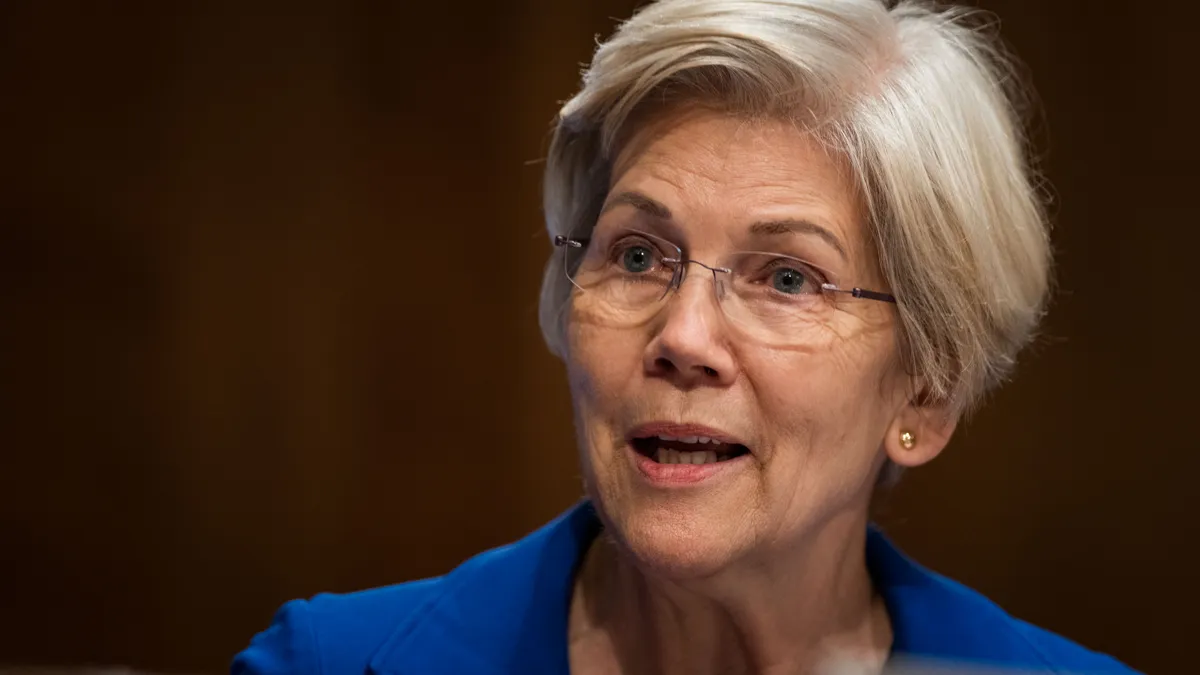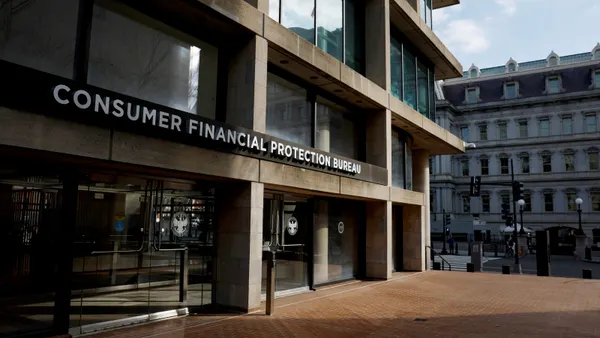Sen. Elizabeth Warren, D-MA, wrote Federal Reserve Chair Jerome Powell on Monday with an eye toward a report in The Wall Street Journal last month indicating the central bank chief is advocating cutting the proposed increase in capital requirements for the U.S.’s biggest banks in half.
Further, Warren wrote, the report alleges JPMorgan Chase CEO Jamie Dimon and other big-bank executives “lobbied [Powell] extensively.”
At a meeting in Washington last fall, Dimon “told his fellow CEOs to bypass Michael Barr, the central bank’s vice chair for banking supervision” and “instead press other Fed governors,” particularly Powell, to revise the capital requirements proposal, The Wall Street Journal reported in May.
CEOs of some of the nation’s largest banks met with Powell more than a dozen times between July 2023, when the capital requirements proposal was first floated, and March, the Journal reported, citing Powell’s public calendar. Four of those meetings or calls reportedly were with Dimon.
Warren labeled the report a “highly disturbing turn of events.”
“Vice Chair Barr supports the current iteration of the Basel rule — and your actions to overrule him are not consistent with the intent of the law,” Warren wrote Monday.
Congress explicitly delegates bank supervision to the Fed vice chair specifically appointed to that role, Warren wrote.
Warren cited a November 2021 exchange between herself and Powell, noting she asked Powell how he would respond if the vice chair for supervision were to make a proposal with which he disagreed.
“I would not see myself as stopping those kind of proposals from reaching the Board, since the law seems to indicate that that’s the job of the vice chair for supervision,” Powell said at the time.
Powell testified in March he expects “broad and material changes” to the capital requirements proposal. The comments came just a day after 29 House Republicans urged the Fed to withdraw the proposal entirely and resubmit it.
A new proposal, though, would likely be impossible to enact if Republicans were to gain control of the White House in November’s presidential election.
Powell noted, in his March testimony, that the capital requirements proposal has generated “voluminous” feedback.
Warren isn’t the only lawmaker holding regulators’ feet to the fire this week. Senate Banking Committee Chair Sherrod Brown, D-OH, wrote Acting Comptroller of the Currency Michael Hsu and outgoing Federal Deposit Insurance Corp. Chair Martin Gruenberg on Friday, urging each to follow through on measures their agencies proposed to toughen bank merger guidelines.
But Warren’s tone may ring harshest.
“Your opposition to the Basel III rules is not new,” Warren wrote. “But it now appears that you are directly doing the bank industry’s bidding.”
Also not new is Warren’s outspoken criticism of Powell. Ahead of his renomination to lead the Fed in 2021, Warren called Powell a “dangerous man.”
Though if there’s another high-profile figure in finance with whom Warren has a longer history of fundamental disagreements, it may be Dimon, the other subject of the alleged capital requirements compromise.
“Instead of doing Mr. Dimon’s bidding, you should do your job and allow the Board to convene for a vote on a 16% capital increase by June 30,” Warren told Powell, citing the date she says global regulators have highlighted as a deadline to prevent financial crisis.
The European Union, though, has opted to delay until 2026 the Basel III upgrade that governs how banks cover market risks in their trading books.
“This one-year delay ensures a global level playing field,” Mairead McGuinness, the EU’s financial services commissioner, said Tuesday, according to Reuters. “It gives us time to see what others are doing.”
The “others” in this scenario are the U.S., a reference to uncertainty surrounding the Fed, OCC and FDIC capital requirements proposal — and what the measure will look like if it passes.














